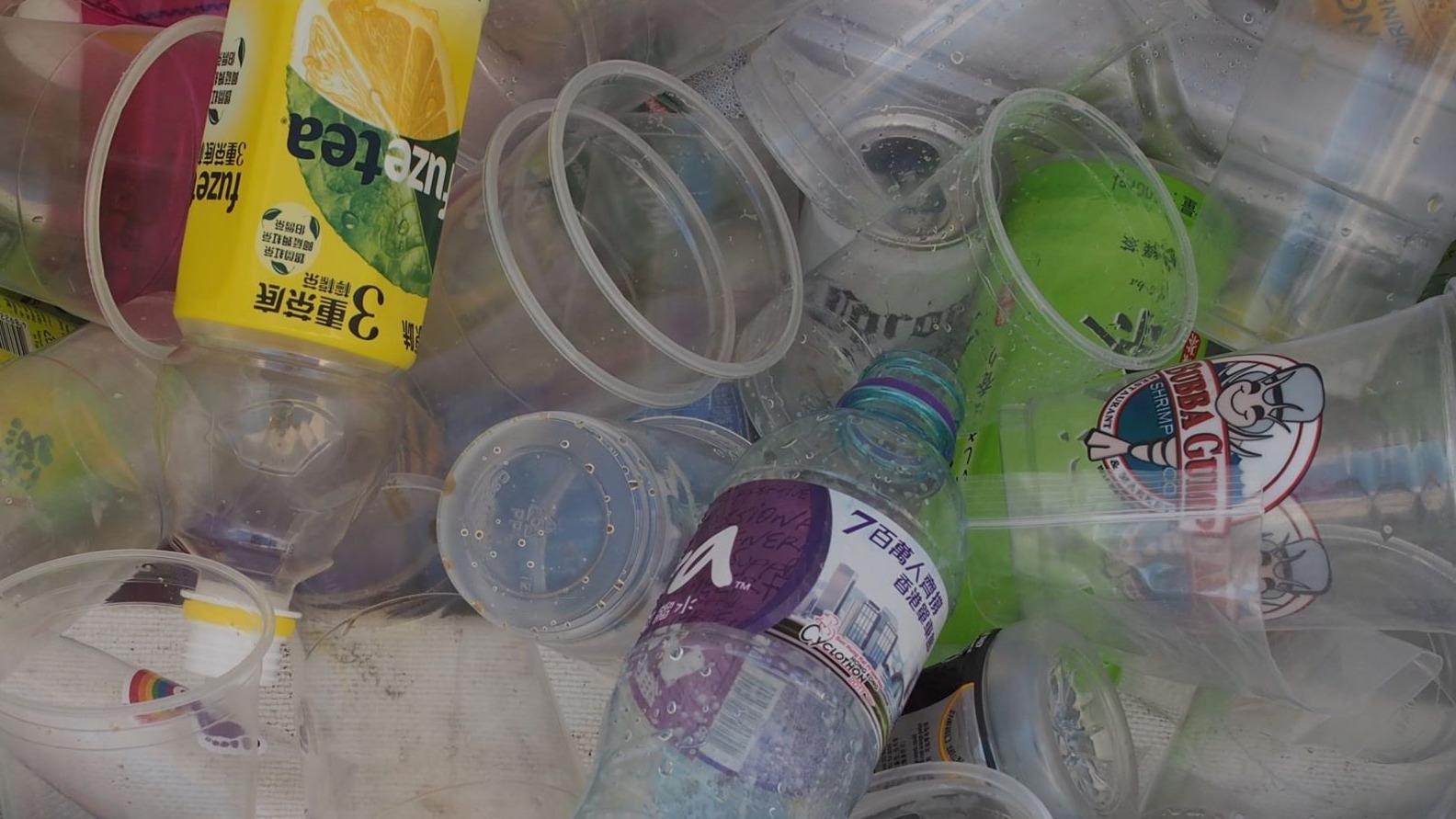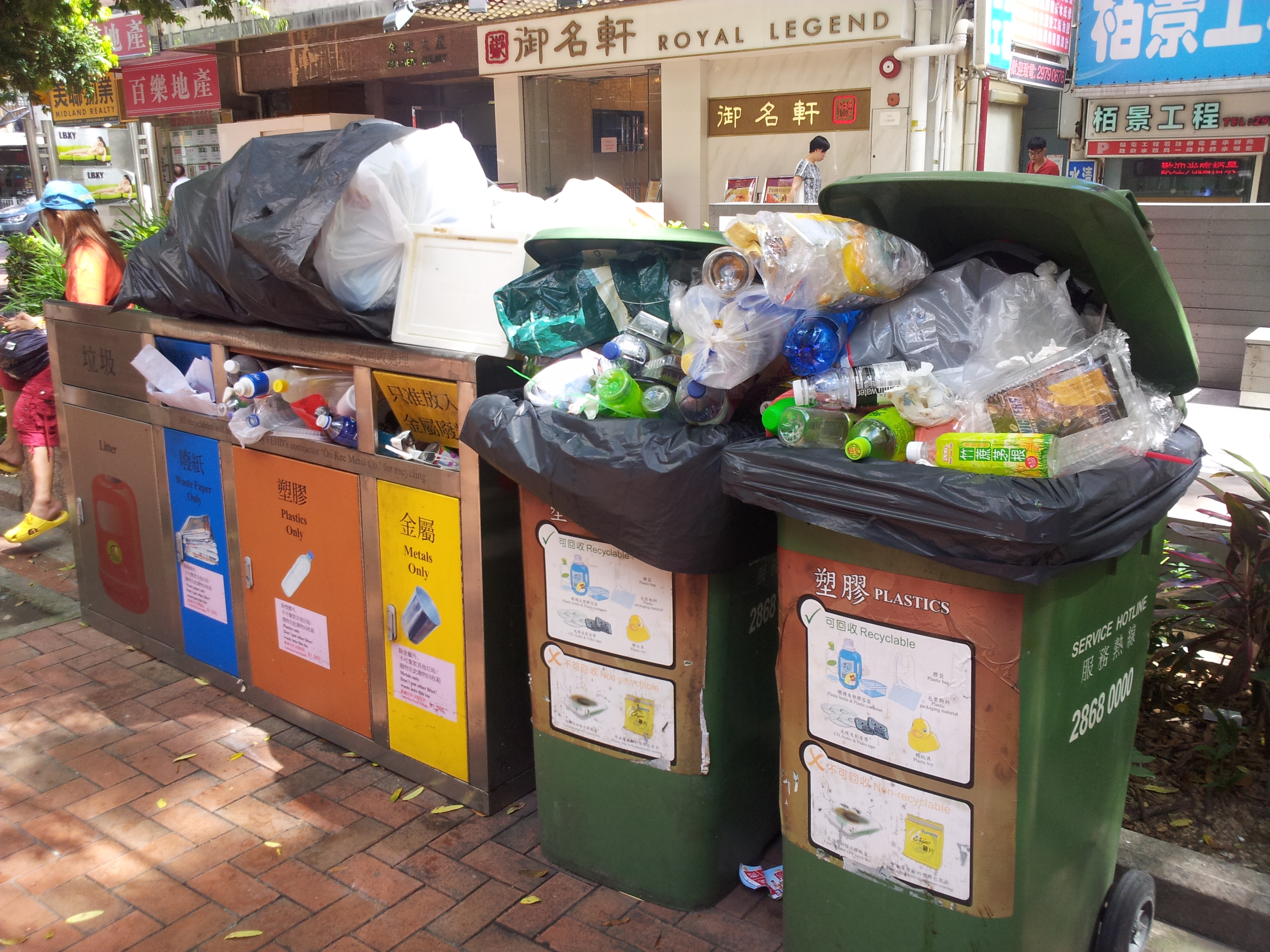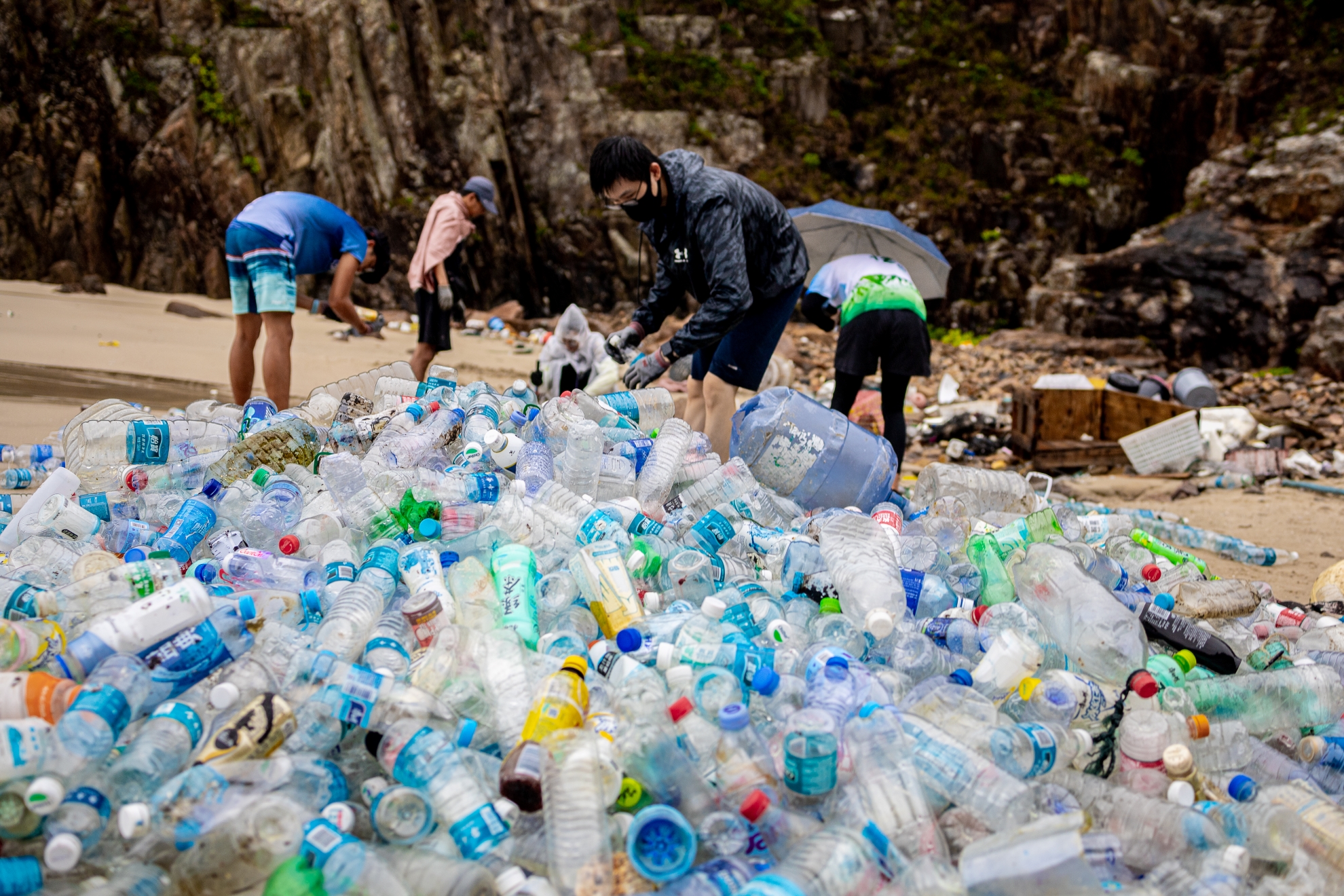Environmental groups support the legislation of the Producer Responsibility Scheme, Urging the government to set a clear implementation date to rapidly reduce beverage container waste
 19 Feb 2025
19 Feb 2025
- Category
- Keywords

To whom it may concern:
Environmental groups support the legislation of the Producer Responsibility Scheme, Urging the government to set a clear implementation date to rapidly reduce beverage container waste
The Producer Responsibility Scheme for beverage plastic bottles and paper beverage boxes will be discussed by the Legislative Council's Panel on Environmental Affairs on February 24. Documents uploaded by the committee today (February 18) indicate that the scheme does not set a specific implementation date. Several environmental groups agree that although the government should legislate on a common legal framework for the Producer Responsibility Scheme, the documents mention no specific date of implementation, and the recycling targets are too weak. We reiterate that the government must promptly implement an effective Producer Responsibility Scheme for plastic beverage containers and beverage cartons to minimize beverage container waste.
The amount of plastic bottles discarded in Hong Kong has remained high over the past decade, with approximately 200 tons being disposed of daily. Calculated at 25 grams per bottle, Hong Kong discards about 8 million plastic bottles daily, while the disposal of paper beverage packages ranges from 67 tons to 91 tons per day. If the scheme is postponed for a year, yet another 2.92 billion plastic bottles and numerous beverage cartons manufactured by beverage producers will end up in landfills and eventually even enter the natural environment. Apart from adding pressure to landfills and causing environmental pollution, the disposal costs are likely to be borne entirely by public funds. We urge the authorities to implement an effective Producer Responsibility Scheme promptly to minimize plastic waste pollution. Below are our suggestions for the scheme:
1. The target recycling rate for the first 1-3 years must be set at ≧70%
Several leading beverage companies in Hong Kong publicly committed in 2018 that the initial recovery rate under the Producer Responsibility Scheme should reach at least 70%, and gradually increase to 90% [1]. Cases in Slovakia [2], Latvia [3], and Ireland [4] in recent years have shown that with attractive economic incentives and convenient recycling networks, the recycling rate of beverage containers can be raised to over 70% in a short period. Therefore, the 70% recycling and waste reduction goals not only have broad support from the industry, but are also common international practices. However, the government's proposal suggests that a similar recycling rate will only be achieved 6-8 years later. We believe that such a prolonged delay will not help alleviate the imminent waste problem.
2. A 1-dollar deposit return system is a public choice and preferred over a 10-cent rebate system
The scheme should implement a 1-dollar deposit return system rather than a 10-cent refund system. With a deposit return system, consumers can receive the full deposit by returning their beverage containers. The deposit should be collected separately from the beverage price and can only be used for returns and strengthening the recycling system. This approach can prevent price increases affecting consumers and prevent beverage companies from profiteering under the guise of so-called “environmentally-friendly rebates”, thus ensuring wider public support for the scheme.
The scheme should use attractive economic incentives to promote public participation in recycling. Numerous international cases have shown that a deposit ranging from 0.1 USD (0.78 HKD) to 0.14 USD (1.09 HKD) can achieve a median recycling rate of 88%. If the deposit is lower than this level, it will fall below 70% [5]. Past opinion polls have clearly indicated that the 1-dollar deposit system has wide public support and is already a public consensus [6]. The authorities should adhere to public opinion and international good practices, ensuring that the deposit level is not set too low, which would not help increase waste reduction intentions and effects.
3. Establish a convenient recycling network for consumers to return containers
During the 2021 consultation, the government clearly stated that stores selling beverages in disposable containers with an area of not less than 200 square meters must set up recovery points. However, the current scheme only covers large stores no smaller than 400 square meters, significantly shrinking the recycling network and hindering public participation in recycling. We believe that the scheme should follow the 2021 consultation direction, where stores with an area of not less than 200 square meters selling beverages in disposable containers should establish their own recycling points or collaborate with other stores to set up shared recycling points, making it convenient for consumers to return beverage containers.
4. Fair supervisory mechanisms
If the scheme fails to achieve recycling and waste reduction targets, the government should impose deterrent fines on beverage producers to ensure that they fulfill their environmental responsibilities.
5. Regularly publish the effectiveness of the scheme and conduct reviews
The scheme should require producers to annually disclose the amount of recycling and the reduction in disposable containers to allow the public and relevant departments to understand the effectiveness of the scheme. The scheme should be reviewed every two to three years to ensure that its contents (such as recycling rates, recycling networks, and deposit levels) are up-to-date, enhancing the effectiveness of recycling and waste reduction.
6. Set targets for reuse rates and reducing the amount of disposable plastic bottles
To reduce environmental pollution caused by disposable beverage containers at the source, the scheme should set targets for promoting refill modes and phasing out disposable containers through reusing containers. For example, by setting up more water dispensers, requiring manufacturers and retailers to provide beverage refill devices, and offering beverage container borrowing services, the scheme can set goals and timetables for reducing disposable beverage containers, moving towards a fundamental principle of waste reduction at the source.
In the 2023 Policy Address, the government already proposed to launch the Producer Responsibility Scheme in 2025, but the implementation of the scheme has been subject to multiple delays, lacking even a specific year of implementation. We believe it is far from ideal. We earnestly implore the authorities to seize the opportunity and implement an effective Producer Responsibility Scheme promptly to minimize the pollution from beverage container waste. Implementing the scheme requires the concerted efforts of the public, government, and business community. We will invite legislators, the Environmental Protection Department, and beverage producers to our meetings to exchange views on the details.
Letter sent to:
Panel on Environmental Affairs of the Legislative Council
Environment and Ecology Bureau
Environmental Protection Department
The Hong Kong Beverage Association Limited
Copy sent to:
All media outlets
Faithfully,
![]()
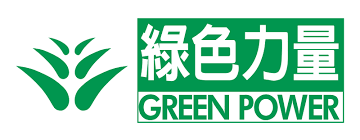


Reference:
[1] Drink Without Waste, “Strategies and Actions”: https://drinkwithoutwaste.org/wp-content/uploads/2021/11/DWW_PositioningPaperEN.pdf
[2] National deposit return system in Slovakia facilitated over 70% return rate in first year, says TOMRA: https://packagingeurope.com/news/national-deposit-return-system-in-slovakia-facilitated-over-70-return-rate-in-first-yearsays-tomra/9395.article
[3] RELOOP Platform: Reuse and Recycling Through Deposit Systems: https://www.reloopplatform.org/wp-content/uploads/2023/09/Reuse-Recycling-through-DRS-event-presentations.pdf
[4] 'Tús Maith Leath na hOibre' – Minister Smyth delighted with latest data from the DRS: https://www.gov.ie/en/press-release/4bf34-tus-maith-leath-na-hoibre-minister-smyth-delighted-with-latest-data-from-the-drs/
[5] Global Deposit Book: An Overview of Deposit Return Systems for Single-Use Beverage Containers 2024: https://www.reloopplatform.org/wp-content/uploads/2024/12/Reloop-Global-Deposit-Book-2024.pdf
[6] 逾七成市民支持膠樽按樽一元 環保團體呼籲公眾填寫諮詢問卷: https://greenearth.org.hk/zh-HK/news/news-plastic/377#gsc.tab=0


 Green Talks
Green Talks 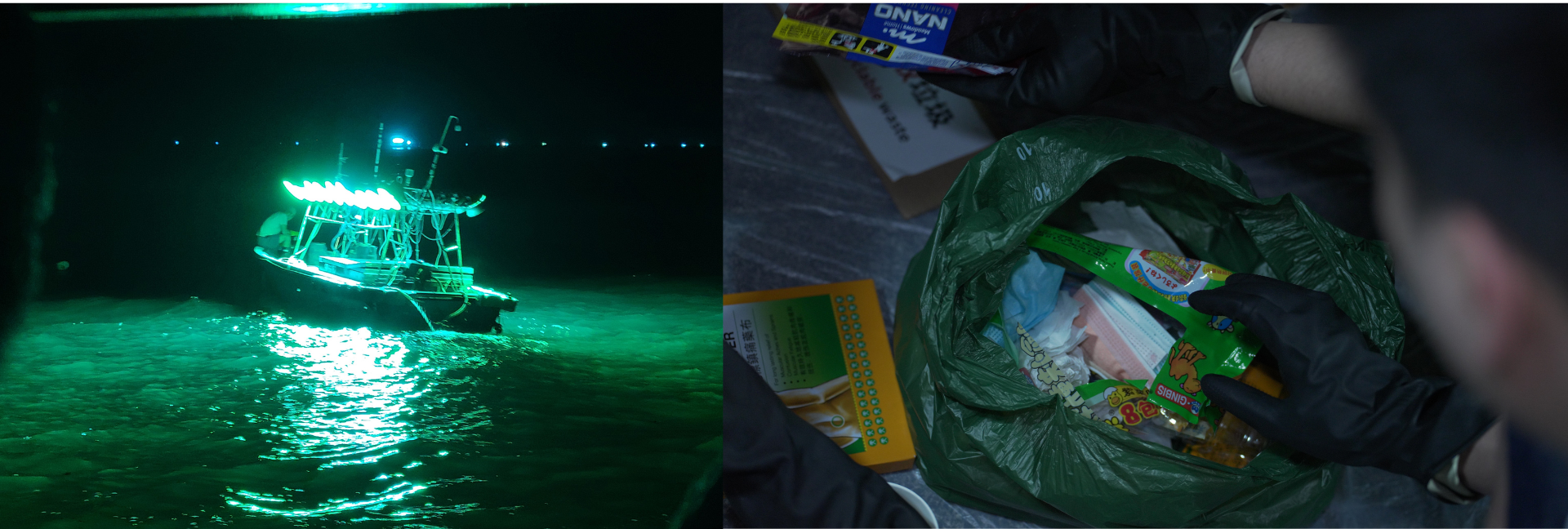

 Back
Back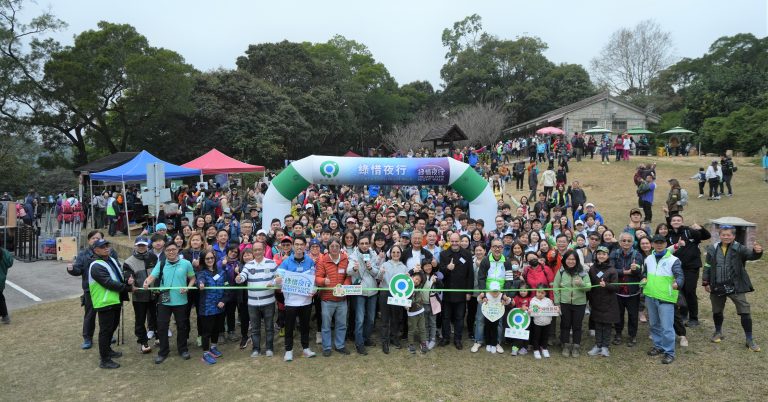
 27 Jan 2024
27 Jan 2024
